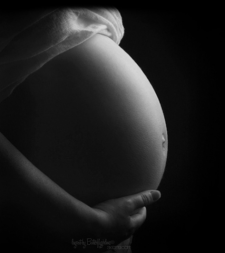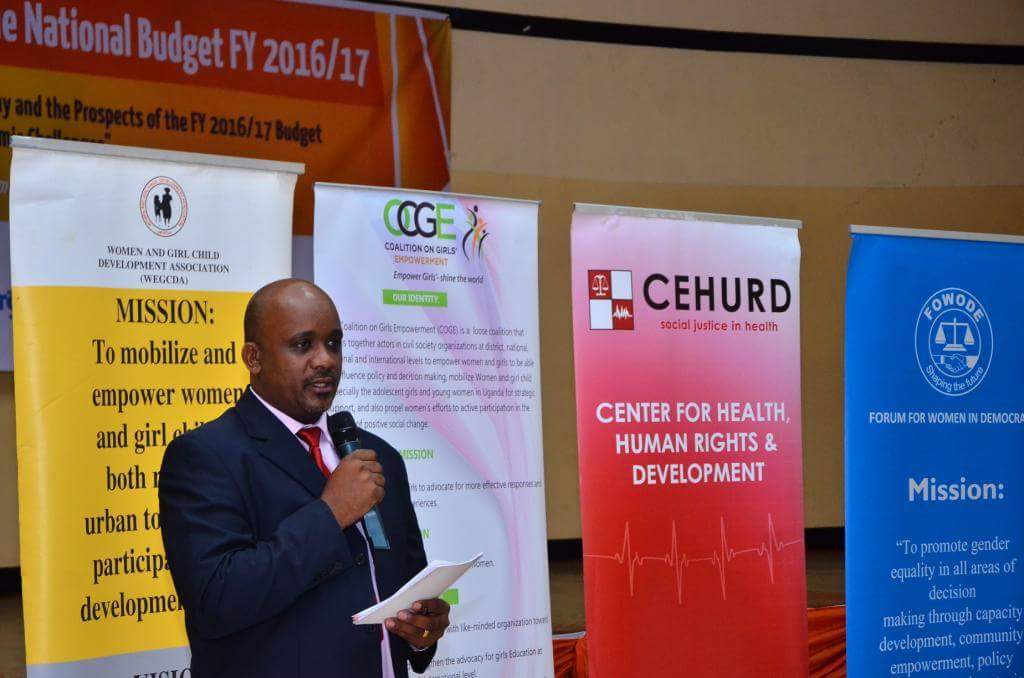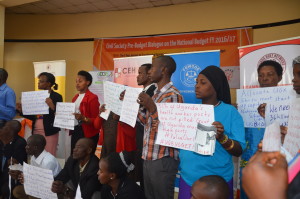By James Zeere
Health rights activists in Uganda will always look to the 2015 as the year in which they cleared major barriers regarding the health rights of mothers in Uganda. The story of maternal health care in Uganda has always been a gloomy one. Three women, now deceased, have forever altered the future of Ugandan jurisprudence on maternal health rights. These women best illustrate the state of maternal health care in Uganda as it is.
On August 19, 2009 Sylvia Nalubowa needed emergency obstetric care. The nurses, who required Sylvia to pay for the necessary commodities for the operation, systematically extorted her. While all this extortion was proceeding, Nalubowa passed away before she could even see a Doctor at the Hospital.
Further to the North of Uganda in December 10, 2010, Jennifer Anguko was kept in the labour ward for up to nine hours without being attended to. She started bleeding profusely while the nurses at the Hospital were in a room close by, chatting. Anguko death could have been averted if the nurses gave her the necessary care and attention.
The Constitutional Court in the first instance rejected CEHURD’s claims for declaratory orders that the deaths of Sylvia Nalubowa and Jennifer Anguko violated maternal health rights and that the State needed to undertake measures to end preventable maternal deaths in Uganda. Questions of the provision for the health services of mothers were committed to the Executive and could not be heard by the Court in accordance with the doctrine of separation of powers. On appeal the Supreme Court decided that the question of whether the deaths were a consequence of the violation of the right to health was a legitimate question that required the interpretation of the Constitutional Court. The Constitutional Court was therefore directed to hear the case.
But before the Supreme Court passed the decision on Nalubowa and Anguko’s deaths, CEHURD brought another matter before the High Court of Uganda. In May 2011, Nanteza Irene accompanied by her husband went to Nakaseke Hospital to deliver a baby and it was detected that she had suffered an obstructed labour and required emergency obstetric care by a doctor who was nowhere to be found within the hospital. The doctor showed up after eight hours but it was too late. Nanteza had breathed her last having endured eight hours of excruciating pain due to an obstructed labour.
These two cases seem miles apart in terms of the issues they deal with, but they’re both concerned with key questions of accountability in the realization of health rights in Uganda. Primarily, the facts identified disclose that the problems in each of the cases were risen when a pregnant mother could not receive emergency obstetric care because the doctor who was supposed to be at the health facility was inexplicably absent.
The Committee on Social Economic and Cultural Rights (CESCR) under General Comment No. 14 on the right to health prescribes that that states have the obligation of making functioning public health care facilities, goods and services available in sufficient quantity. Very importantly, however, CESCR also notes that the precise nature of facilities, goods and services vary depending on numerous factors including trained professional personnel receiving domestically competitive salaries. In that regard, while it may be argued that the state exhausts its obligation under the right to health when it puts in place a health facility and hires qualified health workers that are competent to provide health services required by the public, as the three mothers learnt, it is never enough. In the cases of Jennifer Anguko, Slyvia Nalubowa and Irene Nanteza, qualified doctors to provide emergency obstetric care services had been hired and deployed at the respective hospitals. Yet when they were urgently needed, they were nowhere to be found.
Justice Kabiito in CEHURD Vs Nakaseke District Local Government HCCS 111 of 2012 faulted the hospital administration for not adequately supervising the hospital staff, which led to the failure of ensuring doctors remained at their duty stations to attend to the patients. This here is the first level of accountability. It is not enough to have qualified health workers and commodities at the health facility when at the end of the day the public will still remain unable to access quality treatment. The right to health requires that deliberate measures be undertaken to ensure that all resources, both human and pharmaceutical, that have been put in place for purposes of health care provision serve their purpose, however meager they may be. The failure to put in place measures to ensure that the resources deployed are performing their function makes their supply redundant and deviates from the envisaged goals under the right to health.
In the utopian scenario where human resources, essential medicines and health supplies have been adequately made available in a health facility and they are effectively performing their function of providing quality health care to the public, a second level of accountability arises. According to Justice Bart Katureebe in CEHURD & Ors V Attorney General SCCA No 1 of 2013, while it is the sole prerogative of the executive to make policies for the provision of health care, the Constitution of the Republic of Uganda envisages situations where an individual or the public may be aggrieved by the policy made by the Executive on the grounds that it infringes on the Constitution. In such instances, the Constitution has granted the Constitutional Court’s powers to entertain this grievance in the form of a constitutional petition. Constitutional petitions determine whether or not the policy contravenes the Constitution as alleged or not. Yet, the Constitutional Court had refused to exercise these powers when approached by CEHURD in the first instance to protect mothers in Uganda today.
The Constitutional Court and the High Court are two strong accountability mechanisms that were rightfully recalibrated by the Supreme Court. In addition to ensuring that health care services are available, the state is required under the normative framework of the right to health to ensure that the services acceptable, accessible and of quality. Where the state has through its policies made health care services available but has fallen short on the quality, acceptability and accessibility components, the powers of the Constitutional Court can be invoked because the right to health though not expressly provided for is guaranteed by the Constitution of the Republic of Uganda. The Constitutional Court had divested itself of these powers and denied the public access to justice where policies and laws violated the right to health.
CEHURD Vs Nakaseke District Local Government HCCS 111 of 2012, the Court challenged the State to strengthen its own accountability mechanisms for the protection of the right to health, while in CEHURD & Ors V Attorney General SCCA No 1 of 2013 the Court placed in the hands of the public a formidable weapon to challenge policies or laws that violate the right to health. Jurisprudence on the right to health in Uganda has never been stronger and the fight to realize the right to health within Uganda’s health system has never raised so much hope for mothers. The struggle continues but for now every duty bearer in Uganda can be held accountable for any violation of the right to health in Uganda thanks to these landmark cases.





